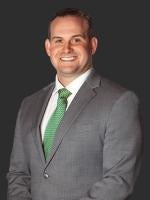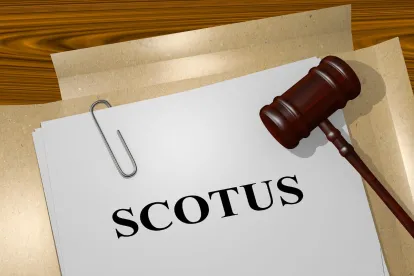On Jan. 9, 2023, the U.S. Supreme Court heard oral arguments in In Re Grand Jury, No. 21-1397. On appeal from the Ninth Circuit, In Re Grand Jury considers whether the attorney-client privilege protects communications between a client and attorney where the communications contain both legal and non-legal advice (“dual-purpose” communications). Although the underlying case involves tax planning and advice, the resolution of this case and the standard adopted by the Supreme Court will have significant implications in both civil and criminal proceedings.
Facts and Procedural History
For a detailed overview of In Re Grand Jury, please refer to our Oct. 6, 2022, Alert: U.S. Supreme Court Grants Certiorari in Case Involving Application of Attorney-Client Privilege to Dual-Purpose Communications with Tax Attorneys
Oral Argument
The petitioner – a law firm that remains unidentified in public court filings to protect the secrecy of grand jury proceedings – advocated for the Court to adopt the “significant purpose” test, asking the Court to allow the withholding of dual-purpose communications as privileged even if bona fide legal advice played only a subsidiary but significant role. Against the backdrop of a long history in which the courts applied a “primary purpose” test, some justices struggled with the practical application of the petitioner’s proposed test, with Justice Kagan characterizing the petitioner’s proposed rule as a “big ask.” Notably, all thirteen amicus briefs filed with the Court supported the adoption of the “significant purpose” test.
The Court expressed some frustration that both the petitioner and the government appeared to present evolving positions during the course of briefing and oral argument. In one instance, the petitioner drew the Court’s ire with its formulation of its proposed “significant purpose” test to include communications that include any bona fide legal purpose, even a seemingly diminutive legal purpose. Although the petitioner asserted that the “primary purpose” rule is difficult to administer, Justice Sotomayor disagreed and observed that the trial judge was “meticulous” in categorizing the communications at issue, dividing them between those for which the “primary purpose” was legal advice (privileged) and those for which the “primary purpose” was tax preparation rather than legal advice (not protected).
In another instance, the government struggled to define the degree to which a communication must be legal in nature to be considered the communication’s “primary purpose.” Moreover, Chief Justice Roberts expressed concern about the labor-intensive burden imposed on the trial judge under the “primary purpose” test and noted that, in some way, the petitioner’s proposed rule “recognizes the reality” of certain nuanced purpose communications and would allow for a more efficient resolution of privilege questions.
Finally, as a practical matter, and as observed by Justice Sotomayor, the adoption of the petitioner’s proposed rule would result in the application of different standards in the federal and state courts: federal courts would apply the expanded “significant purpose” test, while the vast majority of state courts would continue to apply the more stringent “primary purpose” test.
Conclusion
Although the Court did not appear satisfied with the present formulations of either the “significant purpose” test or the “primary purpose” test, several justices appeared quite skeptical of a broadened rule. In a moment of frustration, Justice Kagan referenced “the ancient legal principle, if it ain’t broke, don’t fix it” (which was met with audible laughter in the courtroom).
How the Court will resolve these questions of broad significance remains uncertain, and clients should consult with their legal advisors to understand how best to proceed while awaiting the Court’s ruling.







 />i
/>i
